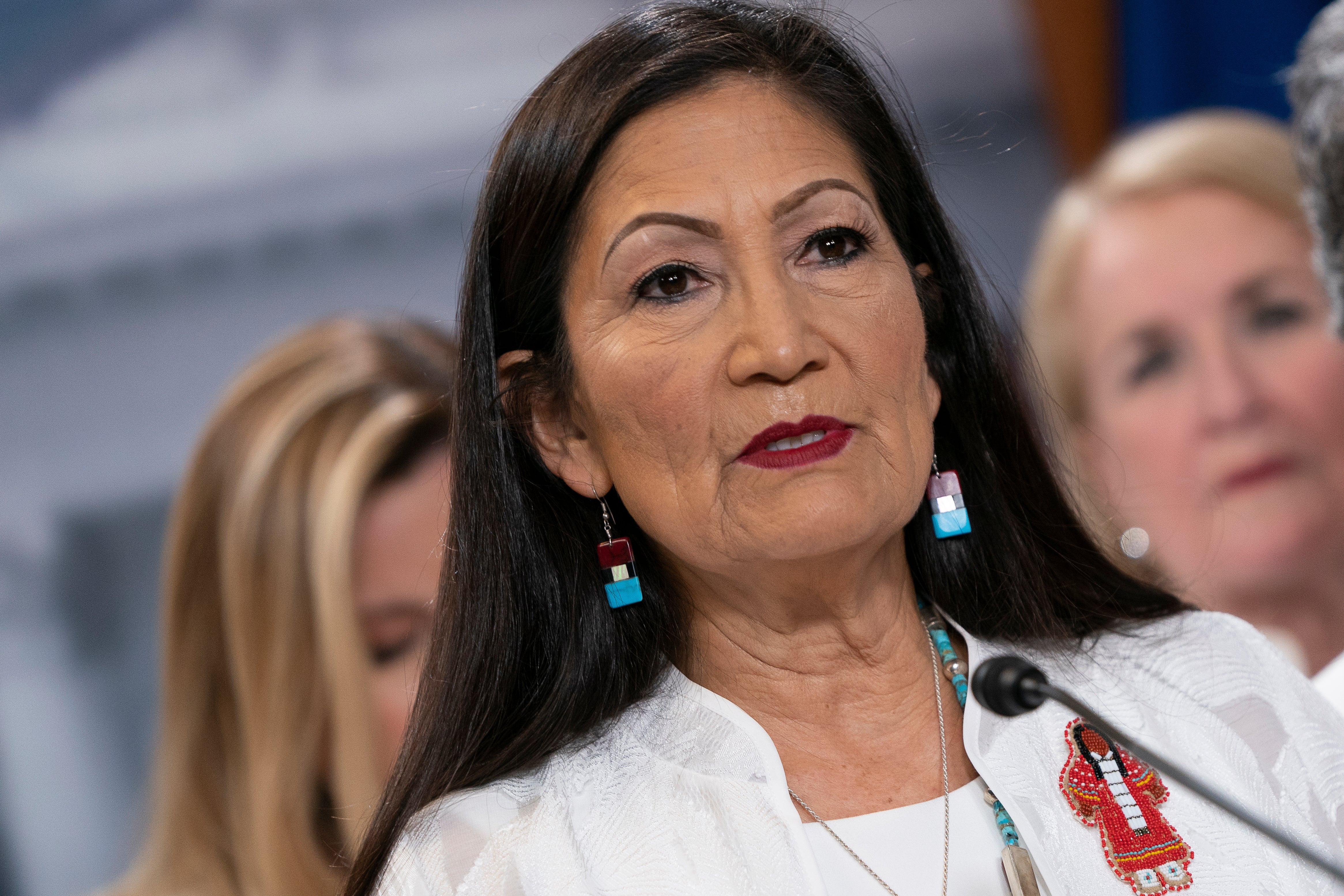US announces historic investigation into ‘unspoken traumas’ at Native American boarding schools
The investigation comes as the remains of hundreds of Indigenous children have been found at former residential school sites in Canada

The Biden administration is launching an unprecedented probe into the US government’s past oversight of Native Americanboarding schools in a bid to “uncover the truth about the loss of human life and lasting consequences” of policies that, for decades, saw hundreds of thousands of Native American children separated from their families.
US Interior Secretary Deb Haaland announced the initiative on Tuesday, asserting that “to address the intergenerational impact of Indian boarding schools and to promote spiritual and emotional healing in our communities, we must shed light on the unspoken traumas of the past, no matter how hard it will be”.
Ms Haaland, who is Native American and a member of Laguna Pueblo, said the investigation would seek to identify past boarding schools as well as possible burial sites at or near those schools.
The investigation comes in the wake of the discovery of children’s remains at former Indigenous residential schools in Canada.
News in late May of the remains of 215 Indigenous children being found at what was once Canada’s largest residential school sent shockwaves across the country and around the world, sparking widespread calls for answers and action.
Hundreds more unmarked graves have now also been discovered at the site of another former residential school in Saskatchewan, with the Federation of Sovereign Indigenous Nations asserting in a statement that “the number of unmarked graves will be the most significantly substantial to date in Canada”.
In Canada, more than 150,000 Indigenous children were forced to attend Christian schools in an effort to assimilate them into society, with the children forced to convert to Christianity and barred from speaking their native languages.
Thousands of children are believed to have died at the residential schools, where children also suffered physical and verbal abuse.
In the wake of the discoveries, Ms Haaland shared her own family’s experience in a piece published by The Washington Post, reminding Americans that the US “also has a history of taking Native children from their families in an effort to eradicate our culture and erase us as a people”.
“It is a history that we must learn from if our country is to heal from this tragic era,” she said.
In her announcement, Ms Haaland said statistics from the National Native American Boarding School Healing Coalition showed that by 1926, more than 80 per cent of Indigenous children of school age were attending boarding schools run by either the government or religious organisations.
In addition to identifying schools and potential grave sites in the US, the government’s investigation will also seek to identify the names and tribal affiliations of the students forced to live at the boarding schools.
Chuck Hoskin Jr, principal chief of the Cherokee Nation in Oklahoma, welcomed the investigation, asserting that any effort to address the “troubling chapters of history” is a positive step, according to the Associated Press.
“I hope we don’t discover gruesome incidents like were discovered in Canada. I just think it’s good in this country to have conversations about what happened to Native American children,” he said.
Join our commenting forum
Join thought-provoking conversations, follow other Independent readers and see their replies
Comments